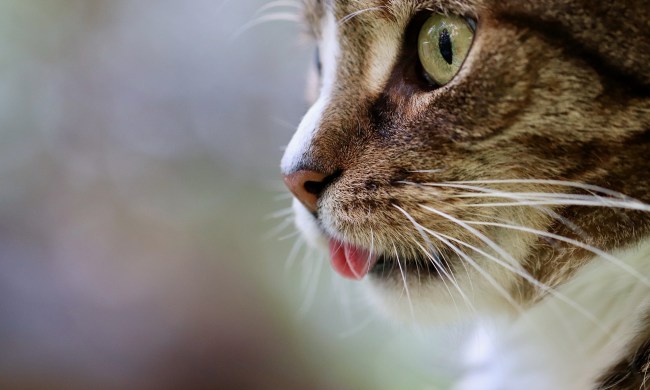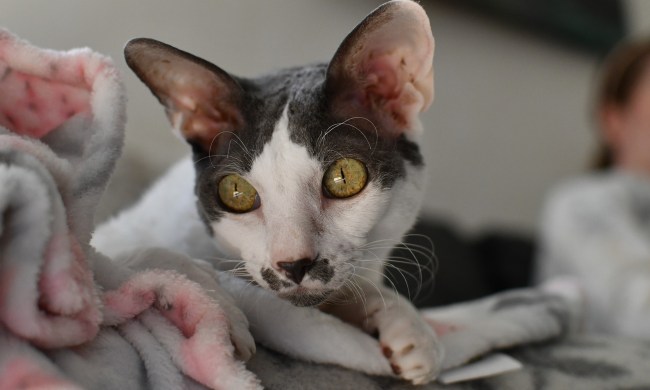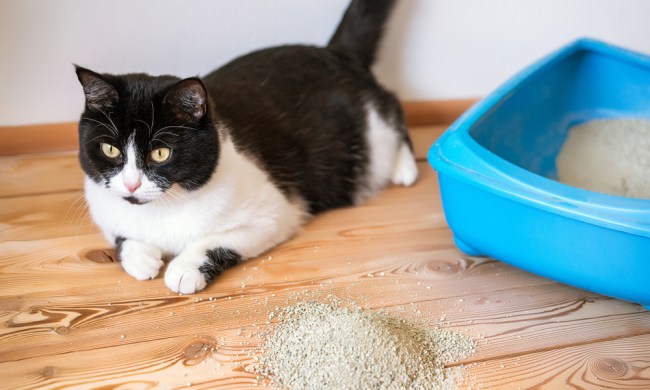You’ve surely seen those old-time drawings of kittens drinking from saucers of milk. It’s common knowledge that kittens drink their mother’s milk, so why shouldn’t they be able to drink cow’s milk out of the fridge? And the same goes for your cat. Many cats develop a love of dairy items like cheese and butter, so is it really bad to feed your cat these items? Before you feed your cat dairy, it’s important to understand how his body works and what effect dairy can have on it. That way, you can choose food and treats that will support your cat’s health and nutrition.
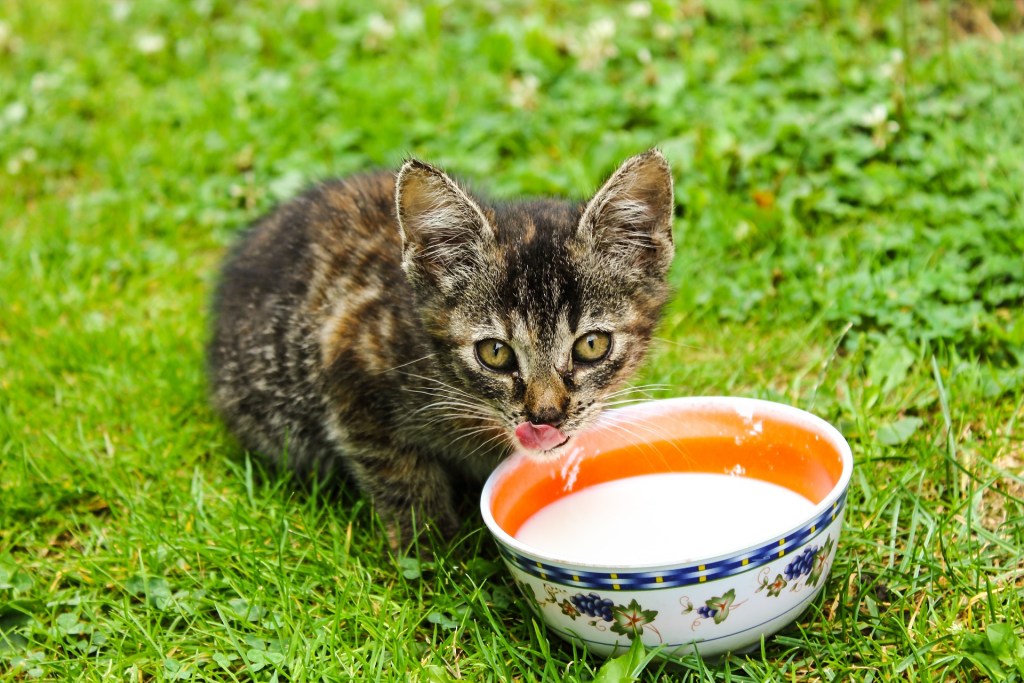
Are cats lactose intolerant?
Kittens drink their mother’s milk, which has lactose in it, and they’re just fine — but that’s because their bodies have the enzyme lactase, which lets them digest milk properly. As kittens age, their bodies produce less lactase, making it more difficult for them to digest milk. Eventually, kittens stop producing that enzyme entirely, and many become unable to properly digest lactose, meaning they’re lactose intolerant.
When a kitten or cat is lactose intolerant, they usually experience an upset stomach after consuming milk. Diarrhea is common, and some cats will also vomit. Those symptoms can start up within about eight hours after the cat drinks milk, so watch your cat carefully if he’s had access to milk.
Some cats seem to digest milk or other dairy products just fine. Symptoms can vary between cats, and different types of dairy products contain different amounts of lactose. Some cheeses, for instance, may have less lactose than milk does, and a cat may be able to digest them more easily.
Can kittens drink regular milk?
Most kittens will get all the milk they need from their mothers, but orphaned kittens or kittens whose mothers are sick may need supplemental nutrition. Regular cow’s milk can upset their stomachs since it’s quite high in lactose. Cow’s milk also has a distinctly different nutritional makeup than cat’s milk, so you can’t rely on it to give kittens the nutrition they need. Instead, it’s much better to feed them a kitten milk replacer.
When feeding kittens, you’ll need to feed them frequently, and the timing of feedings will depend on the kittens’ age. If you’ve never cared for young kittens before, then quickly seek out vet help. Your vet can guide you and help you come up with a feeding and care plan. They can also recommend the best product for your kittens and help you monitor their weight and ensure they’re growing as they should.
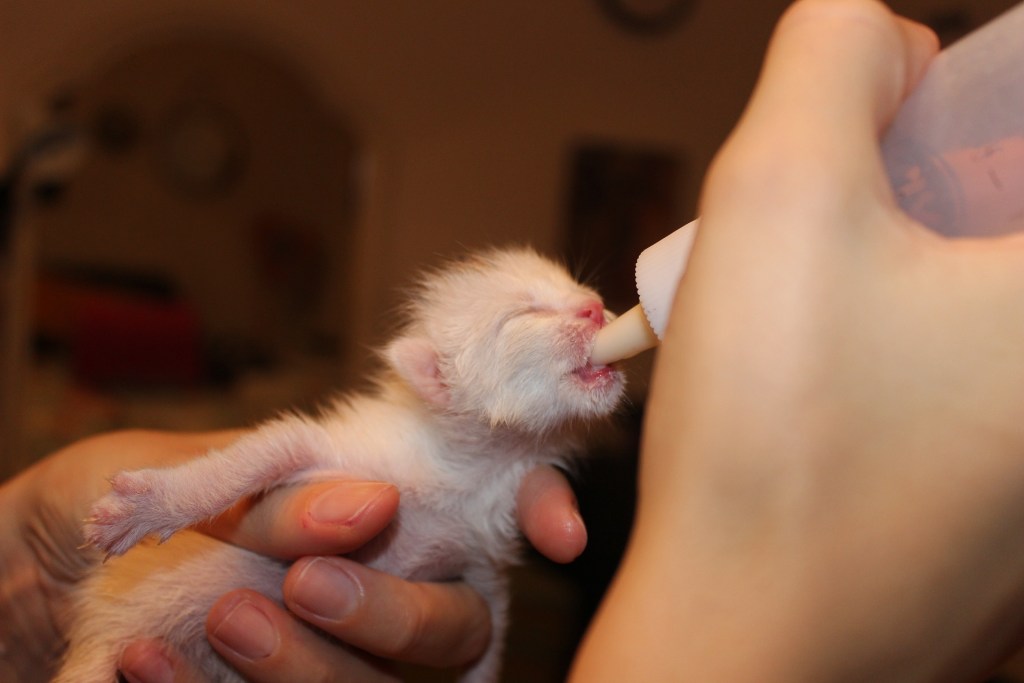
Should you feed your cat cheese, milk, and other dairy?
Even though some cats may not be able to properly digest dairy products, that doesn’t mean they won’t still beg for them when you’re making a pizza or eating cereal with milk. Dairy products can lead to digestive upset, though, so while you might think you’re being nice by sharing your food with your cat, you’re really not helping him in the long run.
You can choose from plenty of dairy alternatives that are much better treats for your cat.
- If your cat loves the taste of milk, then consider buying a cat milk product designed to be easy for cats to digest. These milks are lactose-free and much easier on your cat’s stomach.
- You can also feed your cat one of many commercially available treats. They come in a wide array of options, including liquid treats and food toppers with a creamy texture similar to dairy products.
- If you want your cat to share a taste of your human food, then consider giving him a bit of boiled chicken or cooked salmon. These treats (when fed in moderation) are healthy and safe for your cat, as long as they’re cooked and not topped with butter or spices.
Milk is a core element of a kitten’s nutrition but only while that kitten is young. Giving your cat dairy products as he ages can lead to digestive upset. Instead, always choose a food that’s safe for your cat and that he can properly digest. Avoid anything with lactose, so all dairy products are out. When feeding your cat treats, remember that you should give him only a few per day. Even when feeding treats designed for cats, giving your cat too many can be a sudden change to his system and upset his stomach. Indulge him in just a few treats to keep your cat healthy and to keep those foods extra-special to your cat.
